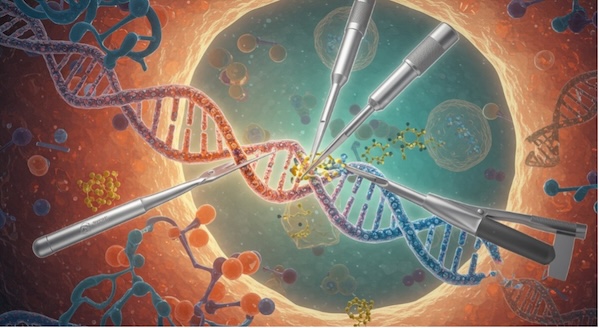Customized gene therapy! The first clinical application of human patients is completed
May 20, 2025
Source: drugdu
 281
281

An international research team recently published a paper in the New England Journal of Medicine, saying that they successfully implemented customized gene editing therapy for a baby with a rare genetic disease. The National Institutes of Health issued a statement on the same day saying that this is the first time that gene therapy has been customized clinically applied in human patients, laying the foundation for the development of customized gene therapy for other rare diseases in the future.
The baby was diagnosed with carbamoyl phosphate synthetase 1 (CPS1) deficiency shortly after birth, a rare genetic disease characterized by the inability of the patient's liver to completely break down certain substances produced during protein metabolism, causing ammonia to accumulate to toxic levels in the body, thereby impairing brain and liver function. The mortality rate of patients with this disease in early infancy is about 50%.
Researchers from the United States, Canada and other countries at the Children's Hospital of Philadelphia and the Perelman School of Medicine at the University of Pennsylvania used CRISPR gene editing technology to develop a customized therapy that corrected the specific gene mutation that caused the disease in the baby's liver cells. The process from the patient's diagnosis to receiving treatment took only six months.
This gene therapy is specifically designed to act on non-germline cells, so the relevant genetic changes only affect the patient himself.
The paper describes the infant's drug infusions when he was about 7 and 8 months old. Within 7 weeks after the initial infusion, the child was able to consume more protein and reduce the amount of drugs used to control ammonia levels. Several scientific media reported that the child was in good condition after receiving the drug infusion. The researchers said that longer follow-up is still needed to evaluate the safety and effectiveness of this treatment.
Joni Larter, director of the National Center for Advancing Translational Sciences at the National Institutes of Health, said this gene editing technology, which allows for rapid customization, is expected to bring transformative precision medicine to hundreds of rare diseases.
There are currently several gene editing therapies approved for marketing around the world, such as the treatment of sickle cell anemia, but these therapies are not completely targeted at individual gene mutations, but use a universal strategy to treat people with the same disease. In contrast, this time the researchers implemented customized gene editing therapy to correct specific gene sequences in the genome of children with the disease.
https://finance.eastmoney.com/a/202505193407590911.html
Read more on
- Rovaxitinib approved for marketing, filling the demand for myelofibrosis treatment March 2, 2026
- Warrant Pharmaceuticals’ active pharmaceutical ingredient receives Brazil’s first official GMP certification March 2, 2026
- Merck’s New Story March 2, 2026
- Rongchang Biotechnology has turned a profit! March 2, 2026
- Jiuyuan Gene’s “Simeglucopyranoside” for weight loss (Jikeqin®) has been submitted for market approval March 2, 2026
your submission has already been received.
OK
Subscribe
Please enter a valid Email address!
Submit
The most relevant industry news & insight will be sent to you every two weeks.



